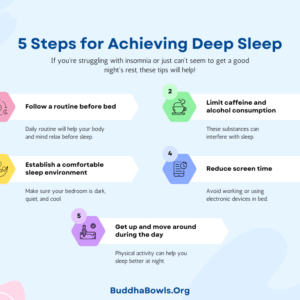A deep dive into the nature of suffering and its alleviation.
Understanding Suffering
Suffering is an integral part of the human experience. This post examines the Buddha’s teachings on suffering, its causes, and how we can work towards alleviating it through mindful practices.
Understanding Suffering: Insights from the Buddha’s Teachings
Suffering is a universal experience. At some point in life, everyone grapples with pain, loss, or discomfort. It’s part of being human. Thousands of years ago, the Buddha sought to understand this very phenomenon. His teachings on suffering, its causes, and how we can alleviate it remain deeply relevant today. Let’s explore these timeless lessons in a way that feels approachable and practical.
The Nature of Suffering: What Did the Buddha Say?
The Buddha’s teachings begin with the Four Noble Truths, which provide a clear framework for understanding suffering. The first of these truths is simple yet profound: suffering exists. In Buddhist philosophy, suffering—referred to as dukkha—is not limited to physical pain or emotional distress. It also includes the subtle dissatisfaction we often feel, even when life seems to be going well. It’s the nagging sense that something is missing or could be better.
This doesn’t mean life is all doom and gloom, though! Acknowledging suffering is not about being pessimistic; it’s about being honest with ourselves. Only by recognizing suffering can we begin to address it.
Why Do We Suffer?
The second Noble Truth delves into the causes of suffering. According to the Buddha, much of our pain stems from tanha, or craving. This craving can take many forms: the desire for material possessions, the longing for certain outcomes, or even the wish for things to stay exactly as they are. When we cling too tightly to these desires, we set ourselves up for disappointment.
Another key factor is aversion—pushing away things we don’t like. Whether it’s an unpleasant situation or a difficult emotion, our instinct is often to resist. However, this resistance can amplify our suffering instead of relieving it.
Finally, ignorance plays a role. Often, we don’t fully understand the impermanent and interconnected nature of life. We chase after fleeting pleasures or hold onto things that are bound to change, leading to frustration and unhappiness.
Is There a Way Out?
The good news is that suffering isn’t a dead end. The third Noble Truth assures us that there is a way to reduce and even overcome it. This doesn’t mean erasing all challenges from life—that’s impossible. Instead, it’s about transforming our relationship with suffering so it no longer controls us.
The Buddha taught that by letting go of craving and aversion and cultivating wisdom, we can find a sense of peace and freedom, even amidst life’s ups and downs.
Walking the Path: Practical Steps to Alleviate Suffering
The fourth Noble Truth outlines the Eightfold Path—a guide for living a more mindful and compassionate life. While the full path includes eight interconnected practices, let’s focus on a few key ideas that you can start exploring today:
- Mindfulness
Mindfulness is the practice of being fully present in the moment without judgment. When we’re mindful, we can observe our thoughts and emotions without getting swept away by them. For example, if you’re feeling stressed, instead of trying to suppress it or distract yourself, you might take a few deep breaths and simply notice how stress feels in your body. Over time, this awareness can help you respond to challenges with greater clarity and calm. - Right Understanding
This involves seeing life as it truly is—impermanent and interconnected. When you recognize that everything changes, it becomes easier to let go of attachments and appreciate the present moment. For instance, instead of clinging to a perfect vacation that has ended, you can cherish the memories while embracing the new experiences life brings. - Compassion
Compassion isn’t just for others; it’s also for yourself. Life can be tough, and everyone—including you—deserves kindness. When you make a mistake or face a setback, try treating yourself with the same understanding you’d offer a friend. - Ethical Living
Living ethically—through kindness, honesty, and respect for others—creates harmony in your relationships and reduces unnecessary conflict. Small acts of kindness, like listening attentively or offering a helping hand, can make a big difference in your own happiness and that of those around you. - Meditation
Meditation is a powerful tool for cultivating inner peace. Even just a few minutes a day can help you develop greater focus and resilience. You don’t need any special equipment—just find a quiet spot, sit comfortably, and focus on your breath.
A Journey Worth Taking
The Buddha’s teachings remind us that while suffering is part of life, it doesn’t have to define us. By practicing mindfulness, compassion, and wisdom, we can navigate life’s challenges with greater ease and find moments of joy along the way.
Remember, this journey isn’t about perfection—it’s about progress. Each small step you take toward understanding yourself and the world around you brings you closer to a more peaceful and fulfilling life. So why not start today? After all, as the Buddha himself said, “Peace comes from within. Do not seek it without.”




